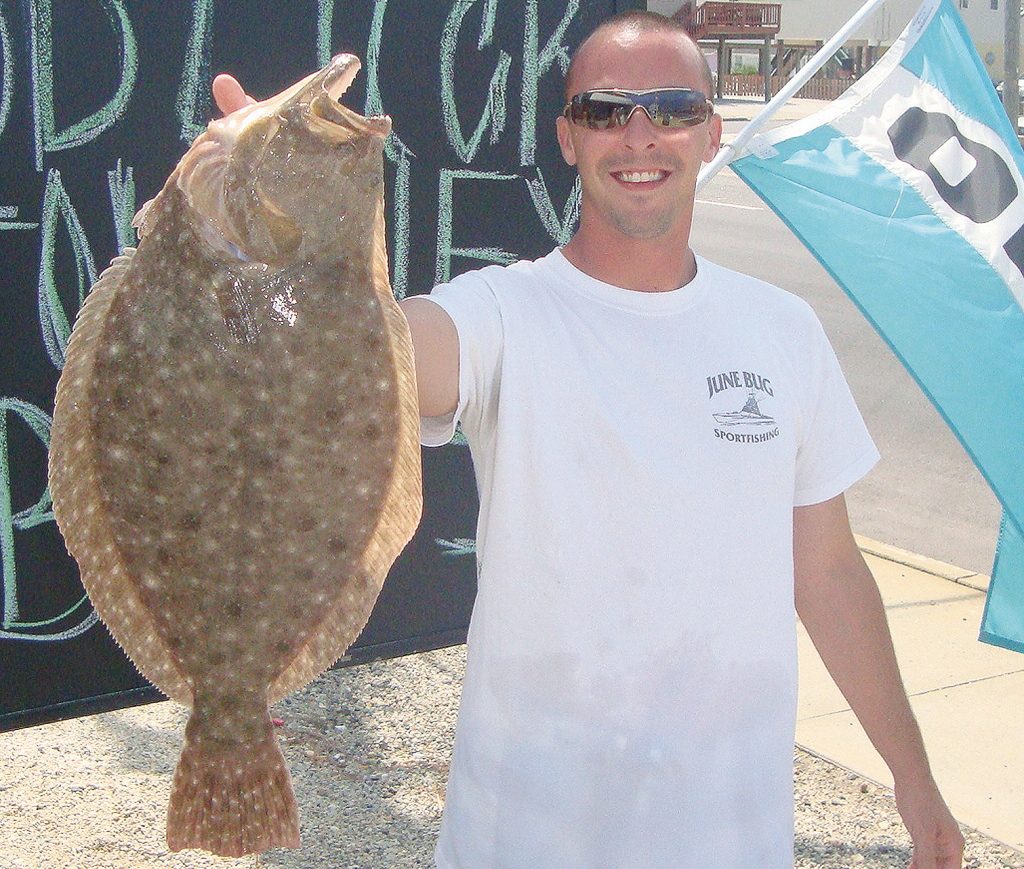Officials in the Trump administration have sided with New Jersey in a dispute between the state and a federal agency, staving off a potential closure of the popular recreational fishery.
New Jersey anglers will continue to be subject to an 18-inch minimum size limit on summer flounder, also known as fluke, along with a 17-inch limit in Delaware Bay and a 16-inch limit at Island Beach State Park. Federal regulators, many of whom were holdover appointees from the Obama administration, had proposed drastic cuts to the recreational quota that would have equated to a minimum size limit of at least 19-inches, if not more, plus a shorter open season.
The Atlantic States Marine Fisheries Commission’s (ASMFC) decision to cut the quota was uniformly blasted by fishing advocacy organizations as well as the state Department of Environmental Protection, citing concerns that the data used by the federal government to justify the cuts was faulty, and further arguing that a size limit of 19-inches or larger would translate to more fish dying by being thrown back than all of the fish legally caught during the season. Additionally, nearly all fish larger than 18-inches are female, meaning just one general could be taken by anglers.
|
|
The state, however, was found to be in violation of the commission’s edict, and took its case directly to the U.S. Department of Commerce, where administration officials agreed with the state’s arguments for a lower size limit. The decision, approved by U.S. Secretary of Commerce Wilbur Ross, finds New Jersey in compliance for management of summer flounder. It follows weeks of information-sharing between the DEP and NOAA about the expected impacts on New Jersey’s summer flounder fishery imposed by the ASMFC earlier this year.
“We are very pleased that NOAA worked with us to understand our position that sound science and good, long-term planning must drive decisions about the management of summer flounder, one of the state’s most important recreational and commercial fish species,” DEP Commissioner Bob Martin said. “New Jersey is fully committed to employing science and public education to conserve a species that is critical to the fishing culture and economy of the state.”
Fluke season runs through Sept. 5 this year.
The DEP has started the “If You Can’t Keep It, Save It” program this year, which encourages anglers to safely release flounder that do not meet the minimum size requirement.
The campaign builds upon the FishSmart campaign promoted by the National Oceanic and Atmospheric Administration. New Jersey’s effort features distribution of print and electronic brochures to anglers registered through the state’s Saltwater Registry, charter and party boat operations, bait-and-tackle shops and members of fishing organizations, as well as radio public-service announcements and newspaper advertisements. The Division of Fish and Wildlife is also doing outreach through its website, email lists and social media.
The Division of Fish and Wildlife encourages anglers to follow these techniques:
- Plan ahead – Expect to release fish and have the necessary equipment to do so, including de-hookers and proper nets; more experienced anglers may also consider using a recompression tool, a device that allows fish to be returned to the water at a safer depth.
- Use appropriate gear – Use gear suited to the size of the fish that you are trying to catch; 5/0 to 7/0 size hooks are recommended to successfully land bigger fish and reduce discards.
- Handle fish carefully – Use knotless, rubberized landing nets and rubberized gloves to avoid removing the protective slime layer on fish and help ensure survival when it is placed back in the water.
“By following these guidelines, anglers will be giving fish a better chance of survival,” said Division of Fish and Wildlife Director Larry Herrighty. “This campaign reminds all generations of anglers that proper handling and quick return to the water will help ensure an ample supply of keepers for generations to come.”

Advertisement

Police, Fire & Courts
South Toms River Man Charged in Violent Murder of Wife

Police, Fire & Courts
Toms River Man, 36, Charged With Failing to Register Under Megan’s Law










